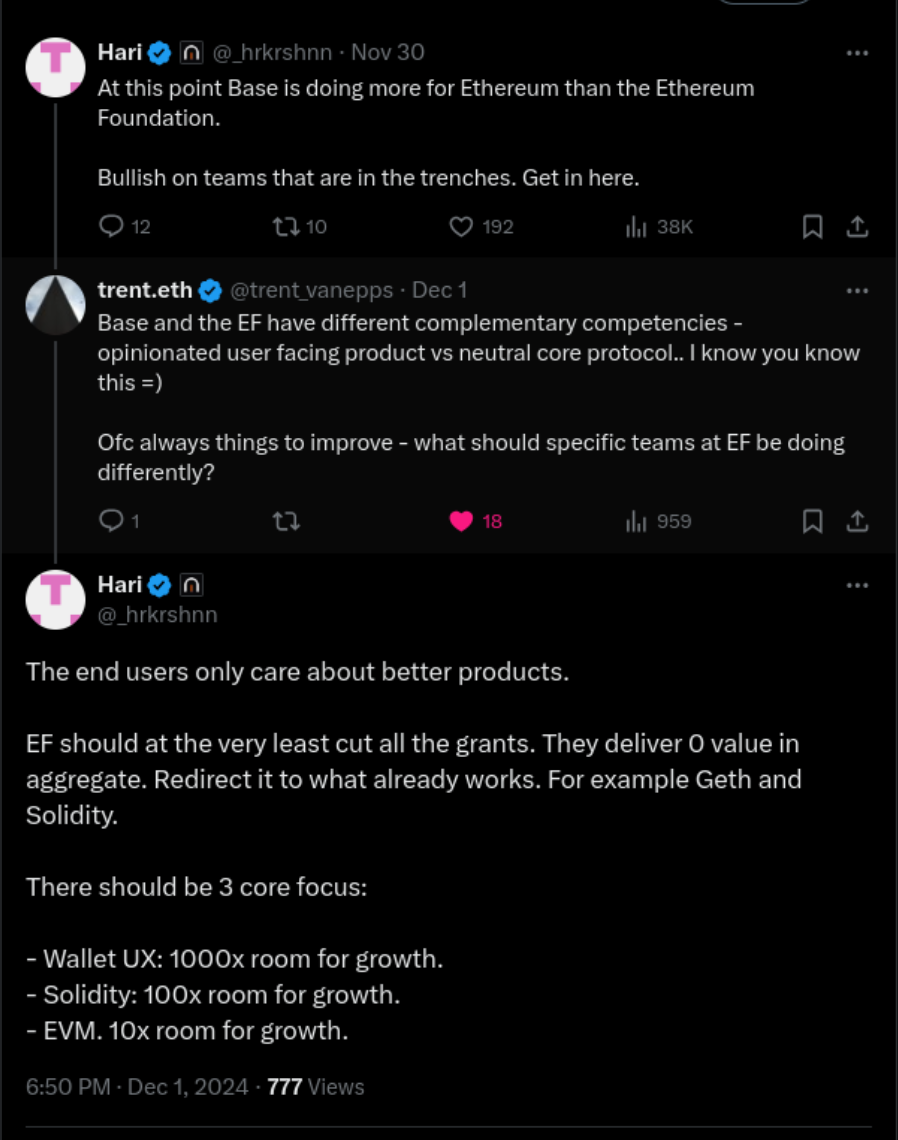⏮️ EPF 5 Rewind

My Ethereum Fellowship journey ends this week, and I want to take a moment to reflect on the experience and what I've learned.
Work
My goal with the Ethereum Fellowship Program (EPF) was to deepen my understanding of the Ethereum Virtual Machine (EVM). And so, 'EVM Memory Repricing' felt like the natural choice. The project set out to investigate whether the gas costs associated with accessing EVM memory need to be revisited.
A good starting point when solving any problem is to see if it has been tackled before. I reviewed the EIPs that addressed changes to the price of EVM opcodes. Through this, I was exposed to the tools, methodology, and security implications involved in proposing changes to gas costs. I also explored the economic impact of cost and pricing. While I still don’t fully understand these economic implications, reading about the concept of "the commons"and The Tragedy of the Commonshas broadened my understanding of how shared resources are consumed (or abused) in the real world.
On the technical side, I benchmarked several clients to understand the current cost of memory access operations. I also analyzed the cost of memory expansion and its impact on memory consumption. My intuition told me that memory was overpriced, and the research explored this possibility.
Towards the end of the program, I reached out to the spec test team with the goal of assisting them with tooling. Dan and I developed Gentest, a CLI tool designed to test transactions for the spec. I hope this tool proves useful in identifying anomalies in protocol execution.
Challenges
It’s difficult to precisely measure the compute resources used by a program. Modern hardware often performs esoteric optimizations under the hood. This problem becomes exponentially more complex in distributed systems like Ethereum, where nodes use a variety of hardware and software configurations. As a result, absolute gas metering remains an open problem.
Alternatively, instructions to the EVM can be priced by anchoring them to a standard instruction — currently, ecrecover.
The ecrecover-anchored gas cost calculation assumes that the machine code executed by the processor is comparable across systems.
However, processor optimizations could favor one instruction over another, meaning that the calculated gas cost is only an approximation.
More importantly, if the cost of ecrecover were to change, such calculations would have a cascading impact.
Outcome
EVM memory is essentially a thin wrapper around a node’s hardware memory, which makes it overpriced. The current pricing mechanism is unnecessarily complicated and hurts users more than it impacts threat actors. A simpler pricing structure (e.g., x gas per byte) would make EVM memory usage more predictable for users.
Alternatively, a paged memory system, similar to the JVM, could enable better reuse of already allocated memory in high-level languages like Solidity. However, the security implications must be carefully considered before proposing such a change.
As part of the analysis, I reviewed 100,000 blocks and close to 3 billion memory accessing instructions. Data shows
that CALL* opcodes are the largest consumers of memory, as they facilitate cross-contract communication.
Access to cheaper memory could make Ethereum more composable, perhaps enabling applications that were previously infeasible.
Over the past couple of weeks, I have also been making small contributions to improve the execution spec test framework.
Next
A common criticism of the Ethereum Foundation is that it moves slowly and spends a lot of money.

After my time in the fellowship, I now have a profound respect for the incredible individuals working at the Ethereum Foundation — people who, in many ways, are far more capable than I am.
EF walks on thin ice; on an unexplored path in a space that is still evolving.
Of course, things could be improved. That’s why I'm excited to join the Ethereum Foundation to help nurture the infinite garden.
I’ll focus on R&D, building on the work done during the fellowship, with an emphasis on:
- Protocol improvements, especially pricing
- Testing the protocol to ensure its robustness and reliability
- Cryptographic primitives
- User experience
- Tools to enhance the developer experience to help iterate faster
Closing
The fellowship is a high-agency program that gives a glimpse into how the Ethereum protocol is maintained, improved, and constantly reimagined. Mario and Josh do an incredible job of making this program exceptionally valuable.
With permissionless enrollment, EPF allows anyone to make meaningful contributions to the ecosystem. What will you build, anon?
Thanks to Kevin, and Mario for their feedback and review.
Some stats for fun:
